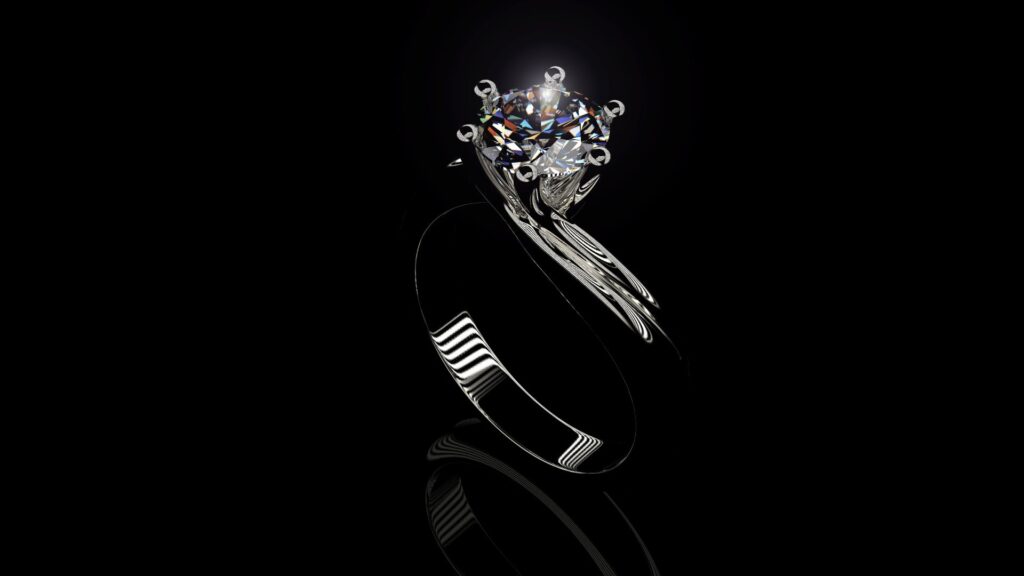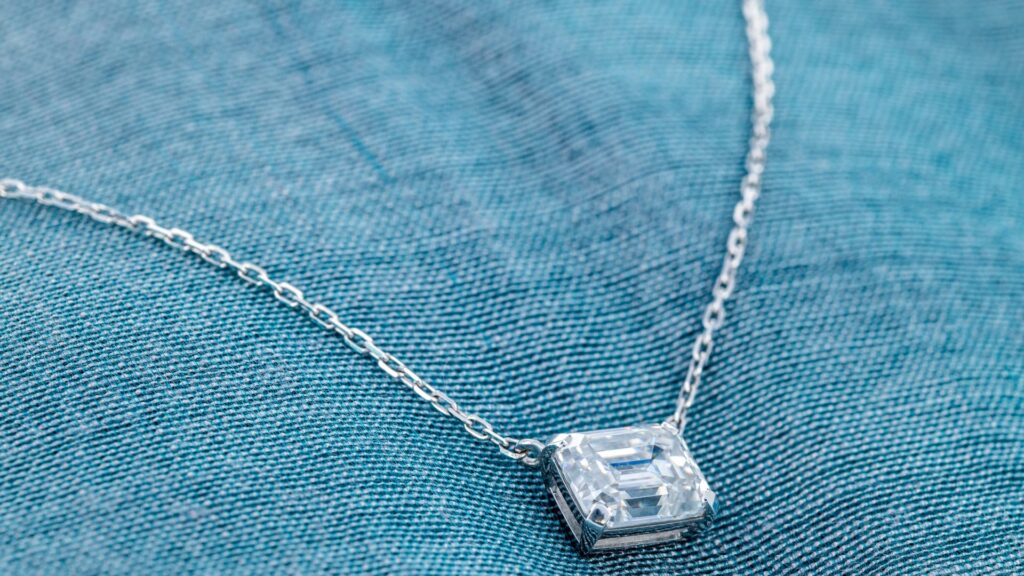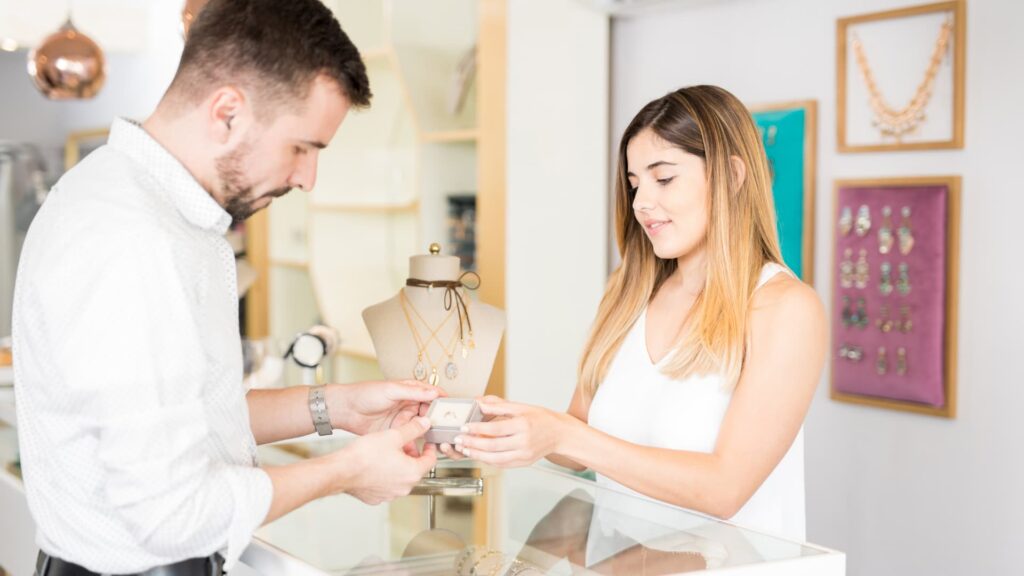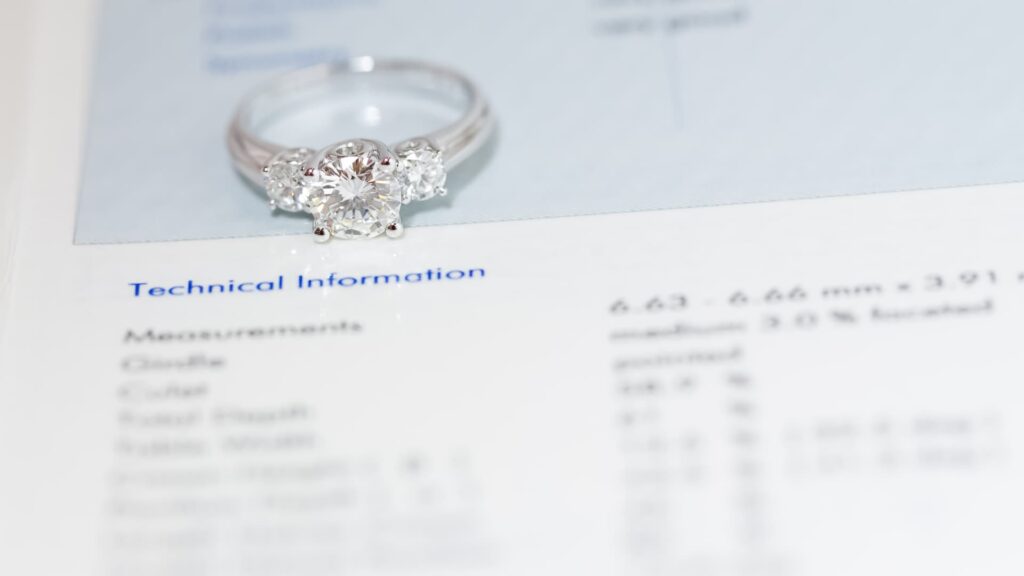Buying a diamond is a bit like purchasing a car; not all cars are the same. With sedans, hatchbacks, SUVs, MUVs, and convertibles, there are so many options, with each at a different price range!
For example, while the average price for a 0.5-carat diamond would be around $1,250 depending on its shape and quality, it can be anywhere between $650 to $8,250!
So what accounts for this incredible variety of prices for diamonds? The answer is that the price of a diamond depends on numerous factors, such as cut, color, clarity, shape, and quality of a diamond, among other things.
You and I may not have the expertise to understand all of these things when inspecting a diamond – so how can you make an informed decision before making a purchase?
Diamond certification is a service that certifies the quality of diamonds to help buyers make informed decisions with a $27 billion diamond industry.
In this article, we will help you understand what a certified diamond is, what the key features are that are certified, diamond certification agencies, and more.
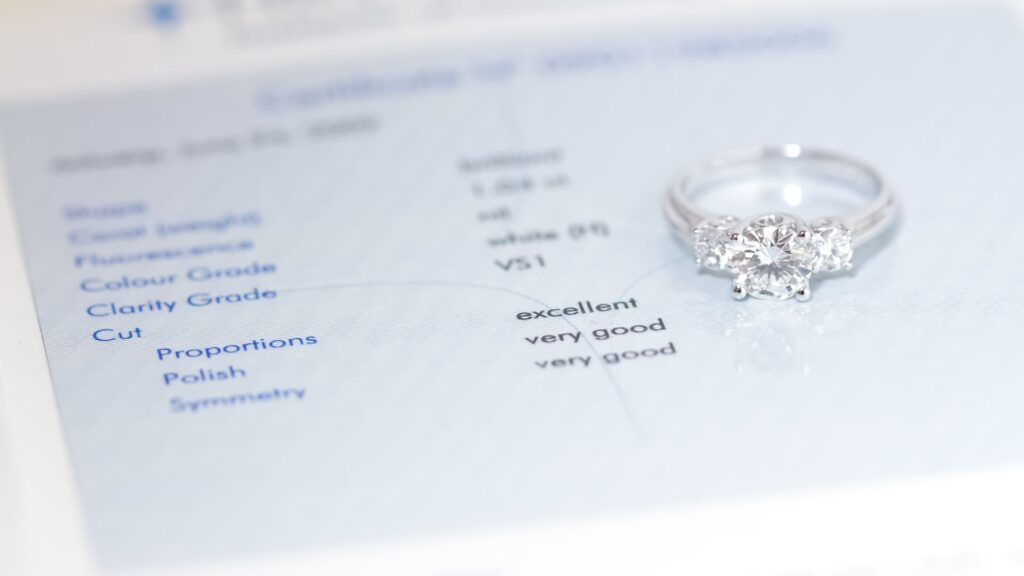
What Is a Certified Diamond, and What Are They Certified For?
Diamonds are certified by a gem laboratory based on the four C’s of diamonds: color, cut, carat, and clarity.
There are four main factors that determine the value of a diamond. These are also called the four C’s of the diamond.
Carat
The number of carats of a diamond represents the mass of the stone. In 1907, the metric carat was set at 200 milligrams worldwide. Thus, one carat of diamond weighs 0.2 grams. Another indication of the number of carats is the number of dots the stone has. A single carat is also referred to as 100 dots.
Related article: How Big Is a 4 Carat Diamond
Color
The color of the diamond is also an important element to determine the value: here the more colorless the more valuable. In the diamond industry the color is classified as follows:
- River: exceptionally white
- Top wesselton: rare white
- Wesselton: white
- Top crystal: slightly tinted white
- Crystal: tinted white
- Top cape: light yellowish
- Cape: yellowish
Clarity
The clarity indicates how many inclusions (small discolorations) are in the stone. The fewer inclusions, the brighter, the more valuable the stone. Clarity is indicated in the diamond industry as follows.
- Flawless: very bright
- VVSI: very very small inclusions
- VSI: very small inclusions
- SI: very small inclusions
- Pique 1: few inclusions
- Pique 2: clear inclusions
- Pique 3: coarse inclusions
Cut
This element determines the appearance of the stone. The most popular cut is the brilliant cut, a round top, ending in a point. The challenge with the cut of a diamond is to let the light reflect through the stone as much as possible. Hence, the ideal planar distribution must be accurate to the millimeter.
Who Certifies Diamonds: Two Main Agencies
Various entities provide diamond certifications, with two main agencies:
- Gemological Insitute of America, and
- American Gem Society (AGS)
These two are known to provide reliable diamond certifications. When a certified diamond comes with verification by GIA or AGS, you can trust the gradings.
Related article: GCAL vs. GIA – What Is the Best Diamond Certification?
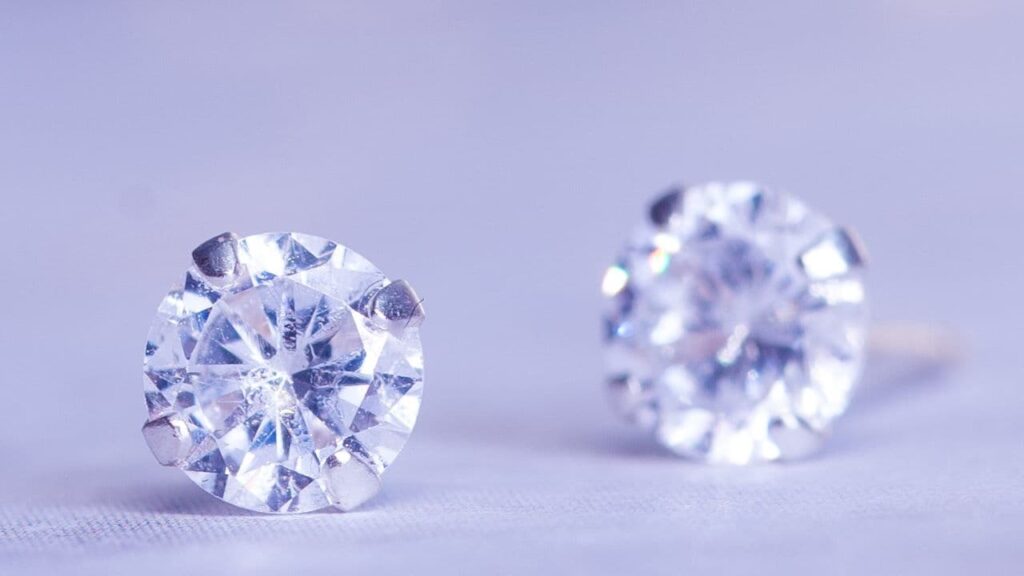
How Does Diamond Certification Work?
There are various gemological laboratories worldwide that issue diamond certificates. These certificates contain information related to the diamond that you intend to purchase.
For instance, the certificate will describe the color, clarity, quality of cut, length, and breadth of the diamond.
Trained professionals scrutinize the diamond and measure its size by using special tools like microscopes and providing a certificate based on their findings.
Several lab institutes in the market provide diamond certification. Each institute describes the features of diamonds and grades them differently. So, it’s essential to know which entities can be trusted. One thing is for sure – never purchase a diamond without a certificate from a reputed grading institute.
What Characteristics Does a Diamond Certificate Show?
- Status of the diamond (Natural or lab-grown)
- The shape of the diamond (round, oval, emerald)
- Diameter of the diamond
- Carat weight (one carat of a diamond is equivalent to 0.2 grams)
- Color of diamond (grading range from D to Z)
- Fluorescence of diamond (reaction of the diamond to ultraviolet exposure)
- Culet of diamond(the pointed portion at the bottom of a diamond)
- Polish of the diamond
- Clarity grade
- Symmetry of diamond
Diamond Certification: Things to Remember
1. Remember, Grading of Diamonds is Subjective
Unfortunately, there is no standardization in grading diamonds across lab institutes.
There is no central institute that defines what color H or S is. Every lab has its grading. If one laboratory calls color D one color, the other lab will call it a different color.
For instance, you can buy a color H diamond ring with an IGI certificate. But when you come home, you find some yellow tints in the diamond because the diamond has an I color according to GIA certification! In this case, IGI may have offered you a weak certificate. Buying a diamond with a weak certification at a high price is unwise.
2. Always Inspect the Diamond Visually as Well
You should evaluate the price of the diamond thoroughly. The price should reflect the cut of the diamond, its quality, and clarity, not only on the certificate but also by the naked eye.
You can always consult a diamond expert if you are not sure whether the diamond you are purchasing is priced reasonably.
3. Grading Reports Are Not the Same as Diamond Certificates
Some jewelers (Tiffany’s is famous for this) make their own grading certificates instead of ones from certification institutes.
While they may claim that they are selling graded diamonds, be aware that the value of such a diamond may be lower in the eyes of a true jewelry expert. Tiffany’s is a generally reliable brand but beware of other less reputable jewelers.
Best Diamond Certifications
1. GIA Certification
The GIA (Gemological Institute Of America) is one of the most reputed diamond grading organizations. The institute was founded in 1931 and began grading gems and diamonds in 1953.
Manufacturers from all over the world send gemstones and diamonds to this institute for evaluation. Many laboratories cannot measure the color and clarity of the diamond properly because these elements are hard to measure. But this institute pays special attention to these elements.
The Gemological Institute of America also offers various programs and online courses to provide technical training in gemstones and jewelry.
2. AGS Diamond Certification
The American Gem Society was founded in 1943 by a group of jewelers to protect the public from fraudulent jewelry and advertising. It established its laboratory in 1996 to provide grading services to the diamond industry.
Moreover, the organization provides education to jewelers, retailers, and consumers regarding different segments of the diamond industry.
The society evaluates the 4 Cs (i.e. color, carat, cut, and clarity) of the diamond, on a 0 to 10 scale. The high-quality diamonds are given 0 grades, whereas low-quality diamonds are given a grade of 10.
The AGS labs are one of the most trusted labs worldwide. The certificate assures that professionals have analyzed the diamond you purchased.
3. International Gemological Institute
The International Gemological Institute was established in 1975. It has offices in New York, Hongkong, Bangkok, Toronto, Los Angeles, and many other cities.
The institute provides colored stone reports, diamond analysis, authentication, and laser inscription services and offers diamond courses through IGI schools of technology. Graduates from this course are awarded IGI Diplomas.
The IGI has one of the largest laboratories worldwide to certify diamonds. Additionally, it is the first institute to grade lab-grown diamonds. The organization mainly focuses on loose diamonds and finished jewelry pieces.
As the name suggests, lab-grown diamonds are man-made in a laboratory under a controlled process. They are very similar to natural diamonds in physical, chemical, and optical properties. Still, they take just a few weeks to form rather than the natural process, which takes millions of years.
4. Gemological Science International
The Gemological Science International was founded in New York City in 2005. It is one of the largest gemological entities globally and has offices on four continents. The entity grades both natural and lab-grown diamonds.
Their lab has advanced materials and instruments to detect the diamond’s clarity, cut, symmetry, and other essential features.
They provide grading reports and educational materials so that the consumers will understand the information provided in the certificate in the context of jewelry.
The GSI laboratory provides various services, which include the following:
- Laser inscription
- Cut grade analysis
- Treatment identification
- Metal engraving
5. Hoge Raad Voor Diamant (HRD Antwerp)
The Hoge Raad Voor Diamant is another institute in the city of Antwerp (Belgium) that has provided diamond certificates in Europe since 1973.
The company provides reports both for lab-grown as well as natural diamonds. Some retailers and sellers believe HRD puts extra grades on diamond color and clarity.
Final Thoughts
Diamonds are precious. The cost of a diamond usually depends on its color, carat, cut, and clarity. While the carat of the diamond is the major factor, the color, cut, and clarity of a diamond can also be responsible for significant variations in price within the same carat range.
When you think of purchasing a diamond, always buy a certified diamond. Certified diamonds also have higher resale value.
Thank you for reading this article; I hope I’ve answered your queries about diamond certification.
Related articles:
Telling The Difference Between Diamond And Cubic Zirconia


